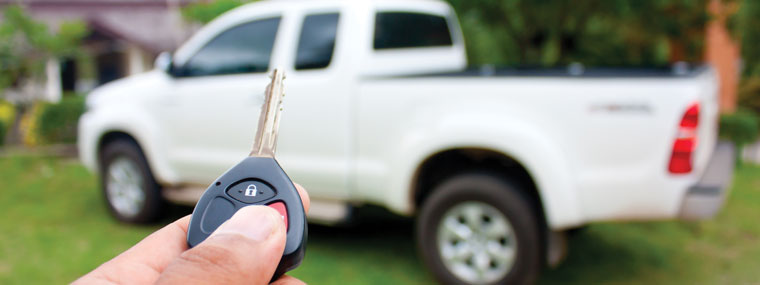
Restrictions Against Trucks and Privacy Concerns
By Ryan D. Poliakoff / Published June 2017
Q
uestion:
I am having an issue at our community in Jupiter, Florida, in that they do not allow trucks to be parked at any time on the premises. Our development was constructed in 1981 and operates as an HOA. The original documents state
that “no trucks are allowed.” However, over time, many communities have changed these rules due to a changing society, which accepts trucks as passenger vehicles. Our association continues to fine residents who park trucks in the community. Is this reasonable?
Also, on the same note, the community has allowed a resident to place a charging station on the common area to accommodate an electric vehicle. My question is, if they change the rules to allow an electric vehicle, but they do not change the rule regarding trucks, would this be considered discrimination?
Answer:
The covenants found within a declaration of covenants are afforded a broad presumption of validity, and they are not invalidated unless they violate a fundamental constitutional right, are against public policy, or are arbitrary in their application. Restrictions on trucks in residential communities are very common, and they are generally enforceable. It is also not “discrimination” to allow certain vehicles, such as electric vehicles, but not others, such as trucks. Your truck does not have any rights of its own, and HOA covenants can be entirely unreasonable, so long as they do not violate the fundamental principles above. I am not aware that any court has recognized a public policy against banning trucks. There is no fundamental constitutional right to park or keep a truck, and the covenant is not applied arbitrarily (it applies to all trucks equally). So, if this is in fact a covenant in your declaration, it would be enforceable.
Where a rule like this would be subject to challenge is with respect to the definition of a truck. Most covenants are more elaborate, and specify the specific types of vehicles that are restricted—RVs, pickup trucks, panel vans, trailers, etc. If, for instance, your declaration literally restricts “trucks,” and if your association allows truck-type vehicles (such as SUVs or small pickups), you could make a reasonable argument that they are prohibited from enforcing the covenant against you because these vehicles constitute trucks, as well, and so the rule has been selectively enforced. There is some support for the idea that certain SUVs should qualify as trucks, particularly if they are built on a truck platform, and so that might give you an opening to challenge the rule.
Question:
My condo complex was built over 40 years ago, and all common doors into the buildings were opened using a traditional key given to homeowners. Within the last two years, security cameras were installed on all doors, and the locks were changed on all the common doors to the buildings. For the doors that don’t open with a key (doors to the clubhouse and stairwells) you are required to open the doors using an electronic key fob. New key locks were installed on all of these doors. I don’t know for a fact, but I am sure the doors opened by a fob are recorded by the association’s management. If I request a physical key for these doors, I’m sure the manager will refuse. Since there are security cameras already recording who is entering the buildings, can the association force me to use the fob to enter my condo building and common areas? I am concerned about my privacy, and I do not think it is necessary for the board or other residents to know every time I enter my condo or a common area. Is this issue covered under the First Amendment’s protection of ‘freedom of speech’, especially when 1) there are security cameras recording who is entering the buildings, and 2) the doors can be opened with a key? There would be no expense to the condo association to issue me a key except the cost of the key.
Answer:
In Florida, neither condominium associations nor homeowners associations are governed by the Constitution or the First Amendment. Your association does not owe you a duty of privacy when you are out and about in the common elements, which elements are owned jointly and severally by yourself and your neighbors.
I am certain you are correct that the association has a record of when each electronic fob is used to open a door. The association has a duty to maintain the common property, and knowing when various rooms are used, and by whom, can facilitate that job tremendously, even if the association also has security cameras. It’s simply additional useful information. Part of the essential nature of a shared ownership community is that you give up certain rights for the good of your community and your neighbors. If your privacy is paramount, you would be better served living in a single-family home that is not governed by a community association.
Ryan D. Poliakoff
Partner of Backer Aboud Poliakoff & Foelster
Ryan D. Poliakoff is a Partner of Backer Aboud Poliakoff & Foelster and serves as general counsel to condominiums, homeowners associations, and country clubs throughout South Florida. He is the co-author of New Neighborhoods—The Consumer’s Guide to Condominium, Co-Op, and HOA Living. In addition to representing associations, he is a frequent contributor at seminars and workshops for attorneys and board members, and he has written hundreds of articles for magazines and newspapers throughout the United States. He can be reached at rpoliakoff@bapflaw.com. For more information about his firm, visit www.bapflaw.com.



